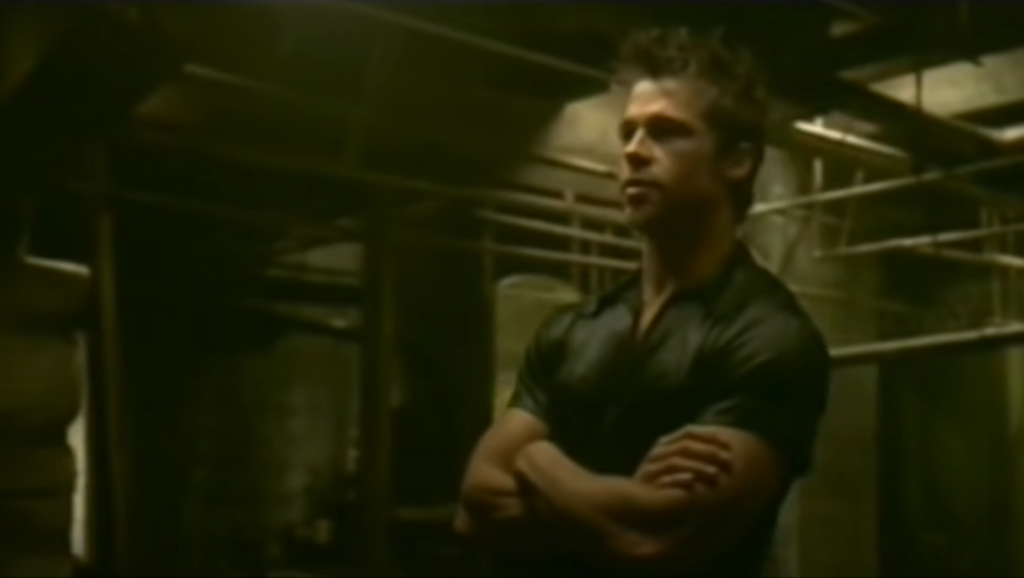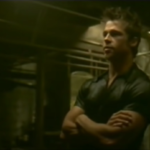Introduction:
In the pantheon of modern cinema, “Fight Club” (1999) holds a special place as a cult classic that challenges societal norms and dives deep into the complexities of masculinity and consumer culture. Directed by David Fincher and based on Chuck Palahniuk’s novel, this film has provoked discussions and debates since its release. In this review, we’ll explore the enigmatic world of “Fight Club” and its profound impact on contemporary cinema.
Unmasking Consumerism:
“Fight Club” takes us on a turbulent journey into the psyche of an unnamed protagonist, portrayed by Edward Norton. He represents the disenchanted modern man, grappling with the soullessness of consumerism and the emptiness of his existence. The character’s chance encounter with the charismatic and anarchic Tyler Durden, played by Brad Pitt, sets in motion a series of events that challenge societal norms.
Inclusivity and Diversity:
While the film primarily focuses on the experiences of the male characters, “Fight Club” also hints at the larger societal issues that impact people from diverse backgrounds. It delves into the anxieties and disillusionment that can affect individuals regardless of their gender, race, or social status.
The Performances:
Edward Norton delivers a captivating performance, masterfully portraying a character who is at once relatable and enigmatic. Brad Pitt’s portrayal of Tyler Durden exudes charisma and rebellion, making him an unforgettable character. The supporting cast, including Helena Bonham Carter, adds depth to the film’s exploration of identity and societal conformity.
Direction and Cinematography:
David Fincher’s direction is marked by its dark, brooding atmosphere and a narrative that keeps viewers on the edge of their seats. The film’s visual style, crafted by Jeff Cronenweth, captures the gritty, disorienting world inhabited by the characters. Fincher’s signature visual storytelling enhances the film’s themes and adds layers of complexity to the narrative.
Relevance Today:
“Fight Club” remains a provocative and controversial film, with themes that continue to resonate today. Its critique of consumerism, masculinity, and societal conformity is as relevant now as it was at the turn of the millennium. The film’s ability to inspire discussions on the individual’s role in a capitalist society is a testament to its enduring relevance.
Conclusion:
“Fight Club” is a cinematic enigma that refuses to be forgotten. It raises profound questions about the search for identity and meaning in a world saturated with consumerism. Its impact on contemporary culture and cinema is undeniable, and its enduring status as a cult classic reflects its ability to challenge the status quo.
Rating: 4.5/5 Stars
“Fight Club” (1999) is a thought-provoking and audacious film that continues to captivate and perplex audiences. If you’re ready to embark on a mind-bending exploration of modern masculinity and consumer culture, “Fight Club” is a cinematic experience you won’t want to miss.
Trailer:






